What is Artificial Intelligence and How Does it Transform Jobs?
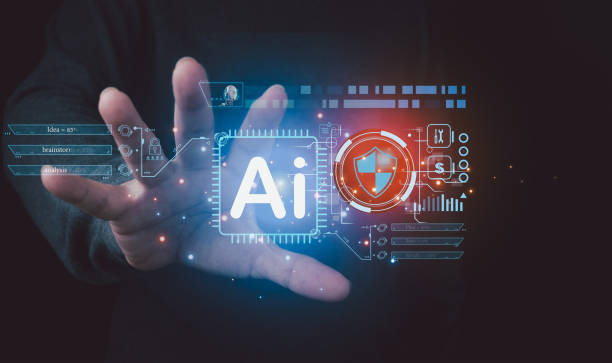
Artificial Intelligence (#AI) is a branch of computer science that focuses on creating machines capable of performing tasks that typically require human intelligence.
These tasks include learning, problem-solving, pattern recognition, language comprehension, and decision-making.
AI is rapidly advancing and is currently being used in many industries and professions.
The impact of AI on the future of AI careers is undeniable.
From automating repetitive tasks to creating new job opportunities, AI is transforming the landscape of work.
Various AI technologies, including machine learning, neural networks, and natural language processing, enable companies to increase their efficiency, reduce costs, and offer more innovative products and services.
While these developments offer numerous benefits, they have also raised concerns about the replacement of human labor with machines.
However, many experts believe that AI will largely complement human labor rather than replace it, fundamentally transforming the future of AI careers.
To better understand the impact of AI on jobs, we must examine its applications in various industries.
For instance, in healthcare, AI can assist doctors in diagnosing diseases, designing treatment plans, and performing precise surgeries.
In the manufacturing industry, AI can optimize production processes, improve product quality, and reduce costs.
In the financial sector, AI can help in fraud detection, risk management, and providing better customer services.
All these applications highlight the significance of the future of AI careers.
Is your online sales not as expected? With RasaWeb, solve the problem of low sales and poor user experience forever!
✅ Increase visitor-to-customer conversion rates
✅ Create an enjoyable user experience and boost customer trust
⚡ Get free consultation now!
Jobs at Risk and New Jobs Arising from Artificial Intelligence
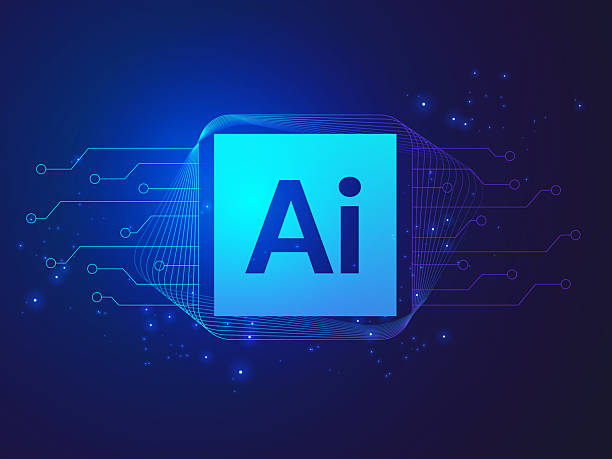
One of the most important questions regarding AI is which jobs are most at risk of automation? Generally, jobs involving repetitive, routine, and predictable tasks have the highest probability of being replaced by AI.
These jobs include telephone operators, data entry clerks, production line workers, and basic accountants.
However, this does not mean these jobs will completely disappear; rather, their roles and responsibilities may change, requiring new skills training.
It is important to note that automation does not necessarily mean job elimination; instead, it can lead to increased productivity and reduced errors.
Conversely, AI also creates new job opportunities.
These opportunities include jobs in AI system development and maintenance, data analysis, algorithm training, and intelligent user interface design.
For instance, machine learning engineers, data scientists, cybersecurity specialists, and intelligent user experience designers are among the jobs currently in high demand, and this demand is expected to increase in the future.
The future of AI careers is full of opportunities for which one must be prepared.
Furthermore, AI can help create new jobs across various industries.
For example, in education, AI can assist in creating personalized learning systems and providing accurate feedback to students.
In agriculture, AI can help optimize water and fertilizer consumption, predict pests and diseases, and increase crop productivity.
In transportation, AI can aid in developing autonomous vehicles, managing traffic, and reducing accidents.
These developments indicate that the future of AI careers is not only not a threat to some jobs but also creates countless opportunities.
Skills Required for Success in the Age of Artificial Intelligence
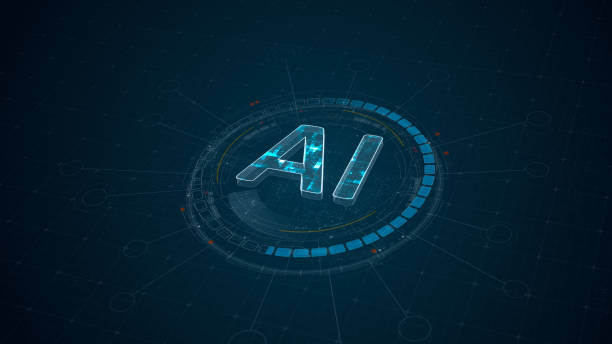
To succeed in the age of artificial intelligence, possessing only technical skills is not enough.
In addition to specialized skills, soft skills are also gaining significant importance.
Soft skills include critical thinking, problem-solving, creativity, communication, and collaboration.
These skills help individuals adapt to rapid changes in the workplace, solve complex problems, and effectively collaborate with others.
Undoubtedly, the future of AI careers depends on soft skills.
One of the most crucial skills required in the age of AI is the ability for continuous learning.
AI is rapidly evolving, with new algorithms and techniques constantly emerging.
Therefore, individuals aspiring to succeed in this field must continuously update their knowledge and skills.
This can be achieved by participating in online training courses, studying scientific articles, and following the latest news and developments in the field of AI.
On the path to a future AI career, one must constantly stay updated.
In addition to technical and soft skills, having sufficient knowledge of AI ethics is also crucial.
AI can have profound impacts on society, and decisions made by AI systems can have unintended consequences.
Therefore, individuals working in this field must be aware of ethical issues related to AI and strive to use AI in a responsible and ethical manner.
The future of AI careers is not possible without considering ethical issues.
| Technical Skills | Soft Skills |
|---|---|
| Machine Learning | Critical Thinking |
| Data Science | Problem Solving |
| Natural Language Processing | Creativity |
| Computer Vision | Communication |
| Robotics | Collaboration |
The Role of Education in Preparing the Workforce for the Future
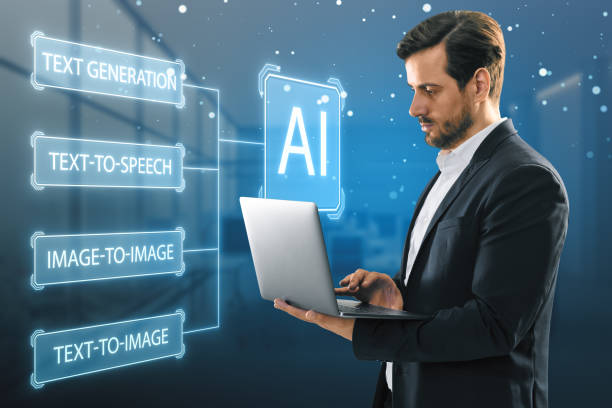
Educational systems play a vital role in preparing the workforce for future careers.
Given the rapid changes in the world of work, educational systems must be updated to teach students the skills required for future jobs.
This includes teaching technical skills such as programming, data analysis, and machine learning, as well as soft skills like critical thinking, problem-solving, and creativity.
The future of AI careers depends on correct and timely education.
One of the main challenges in this area is the shortage of teachers and professors who possess sufficient knowledge and skills in artificial intelligence.
To address this problem, special training programs must be designed for teachers and professors, familiarizing them with the latest developments in AI.
Furthermore, new technologies such as AI and virtual reality should be utilized in the educational process so that students can practically become familiar with these technologies and acquire the necessary skills.
In the field of AI careers, education must be taken seriously.
In addition to formal education, informal learning also plays a significant role in preparing the workforce for the future.
Online courses, workshops, and specialized events offer excellent opportunities to acquire new knowledge and skills in the field of AI.
Moreover, participating in practical projects and internships can help individuals gain hands-on experience and apply their skills in a real work environment.
With these trainings, the future of AI careers will become brighter.
Do you have an e-commerce site, but your sales aren’t as expected? RasaWeb solves your problem forever by designing professional e-commerce websites!
✅ Significant increase in conversion rates and sales
✅ Unparalleled user experience for your customers
⚡ Click to receive free consultation from RasaWeb!
Industries Most Affected by Artificial Intelligence
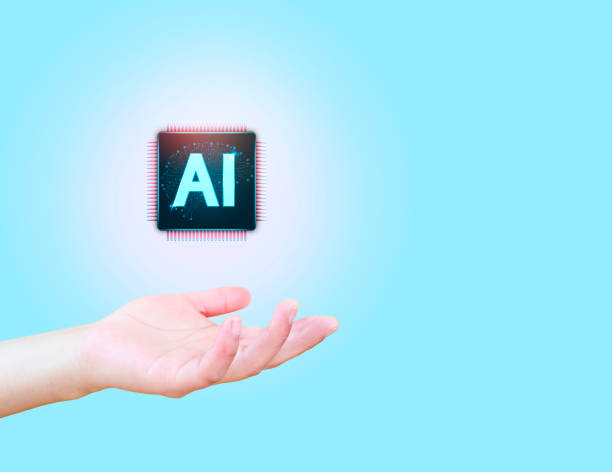
Artificial intelligence has widespread impacts on various industries, but some industries are more affected by this technology than others.
These industries include healthcare, manufacturing, finance, transportation, retail, and energy.
In healthcare, AI can assist in more accurate disease diagnosis, personalized treatment plan design, and improving the quality of patient care.
In the manufacturing industry, AI can optimize production processes, improve product quality, and reduce costs.
All of these have a significant impact on the future of AI careers.
In the financial sector, AI can help in fraud detection, risk management, and providing better customer services.
In the transportation industry, AI can aid in developing autonomous vehicles, managing traffic, and reducing accidents.
In retail, AI can help personalize customer shopping experiences, optimize supply chains, and predict demand.
In the energy industry, AI can help optimize energy consumption, predict equipment failures, and improve the efficiency of energy resources.
All these developments are indicative of the future of AI careers.
Given these widespread impacts, companies operating in these industries must seriously consider investing in AI and adjust their strategies accordingly.
This includes workforce training, developing necessary infrastructure, and fostering a culture of innovation within the organization.
Understand the future of AI careers and plan for it.
Challenges and Opportunities for the Workforce in the Age of Artificial Intelligence
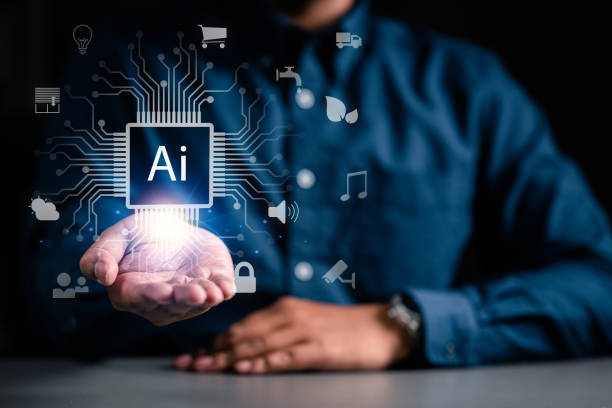
The age of artificial intelligence brings with it many challenges and opportunities for the workforce.
One of the main challenges is the concern about replacing human labor with machines.
However, many experts believe that AI will largely complement human labor rather than replace it, helping individuals perform their tasks more efficiently and focus on more creative and strategic duties.
Thus, the future of AI careers should be seen as an opportunity, not a threat.
Another challenge facing the workforce is the need to acquire new skills.
Given the rapid changes in the world of work, individuals must continuously update their knowledge and skills and acquire the competencies needed for future jobs.
This can be achieved by participating in online training courses, studying scientific articles, and following the latest news and developments in the field of AI.
To have a desirable future in AI careers, one must consider continuous learning.
Conversely, the age of artificial intelligence also creates countless opportunities for the workforce.
AI can help create new jobs across various industries, increase productivity, and improve the quality of life.
Furthermore, AI can help individuals achieve a better work-life balance and spend more time with their family and friends.
This makes the future of AI careers more attractive.
Successful Case Studies in the Use of Artificial Intelligence in Businesses
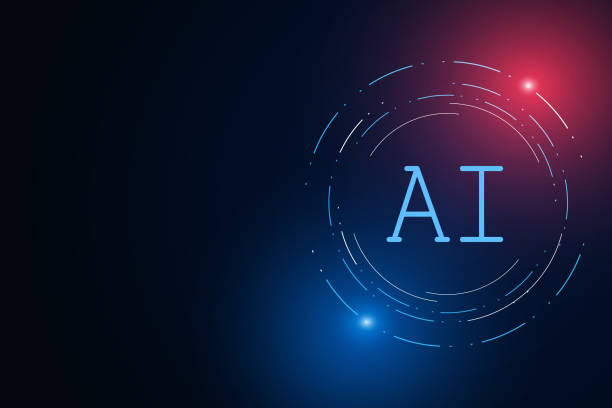
Examining successful case studies can help in better understanding the impact of AI on businesses.
For example, Amazon uses AI to personalize customer shopping experiences, optimize its supply chain, and predict demand.
This has enabled Amazon to provide better services to its customers and increase its market share.
This example shows that the future of AI careers is bright.
Netflix uses AI to recommend movies and series to its users.
This has enabled Netflix to increase customer satisfaction and reduce churn rates.
Tesla uses AI for developing autonomous vehicles and optimizing production processes.
This has allowed Tesla to produce safer and more efficient vehicles and reduce its production costs.
The future of AI careers at Tesla is very prominent.
| Company | AI Application | Results |
|---|---|---|
| Amazon | Personalized shopping experience, supply chain optimization | Increased market share, improved customer services |
| Netflix | Recommending movies and TV series | Increased customer satisfaction, reduced churn rate |
| Tesla | Development of autonomous vehicles, production optimization | Production of safer and more efficient vehicles, reduced costs |
These case studies demonstrate that AI can help businesses improve their performance, reduce costs, and create a competitive advantage.
Therefore, companies that wish to succeed in the age of AI must seriously consider investing in this technology.
The future of AI careers depends on the correct use of this technology.
Government Policies and Their Role in AI Development and Managing its Impact on the Job Market
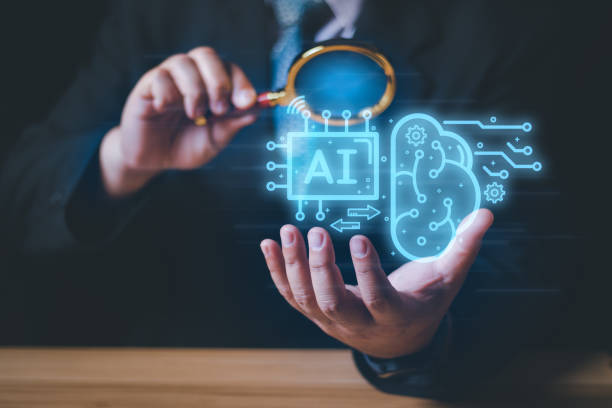
Governments play an important role in the development of artificial intelligence and managing its impact on the job market.
Government policies can help create a suitable environment for AI development and, on the other hand, protect the workforce from the negative effects of this technology.
These policies include investing in AI research and development, workforce training, supporting startups, and establishing appropriate laws and regulations for AI use.
In the future of AI careers, the role of governments is undeniable.
One of the most important actions governments can take is investing in workforce training.
Given the rapid changes in the world of work, individuals must continuously update their knowledge and skills and acquire the competencies needed for future jobs.
Governments can help individuals acquire these skills and prepare for new jobs by offering free or subsidized training courses.
Proper education is very important in the future of AI careers.
In addition to education, governments can help create new job opportunities by supporting startups in the field of artificial intelligence.
This support can include providing financial facilities, tax exemptions, and access to necessary infrastructure.
Furthermore, governments can protect workers’ rights and prevent discrimination and misuse of this technology by establishing appropriate laws and regulations for AI use.
With the help of governments, the future of AI careers is ensured.
Did you know that 94% of users’ first impressions of a business are related to its website design? With professional corporate website design by **RasaWeb**, turn this first impression into an opportunity for growth.
✅ Attract more customers and increase sales
✅ Build credibility and trust in the eyes of the audience⚡ Get free website design consultation!
Future Predictions Regarding Job Market Changes Caused by Artificial Intelligence
![]()
Future predictions regarding job market changes caused by artificial intelligence indicate that this technology will have widespread impacts on various jobs.
Some jobs will be fully automated, while others will change and require new skills.
Additionally, AI will create new job opportunities, but to leverage these opportunities, individuals must be prepared and acquire the necessary skills.
These predictions are very important for the future of AI careers.
One of the most important predictions is that the demand for AI-related jobs such as machine learning engineers, data scientists, and cybersecurity specialists will increase.
Furthermore, the demand for jobs requiring soft skills like critical thinking, problem-solving, and creativity will also increase.
Conversely, the demand for jobs involving repetitive and routine tasks will decrease.
Therefore, individuals who wish to succeed in the future job market must pay special attention to acquiring these skills.
The future of AI careers requires preparation.
Moreover, it is predicted that AI will have a significant impact on how work is performed and organized.
Tasks will increasingly be project-based and team-oriented, and individuals must have the ability to collaborate with others and utilize new technologies.
Furthermore, the importance of continuous learning and adapting to changes will increase.
Under these circumstances, the future of AI careers will be very dynamic.
How to Prepare for a Career in Artificial Intelligence?

To prepare for a career in artificial intelligence, there are several key steps you can take.
Firstly, it is essential to focus on learning technical skills related to AI, such as programming (especially Python, which is the main language for machine learning), data science, and algorithms.
Online courses, bootcamps, and relevant university degrees can be very beneficial in this regard.
Platforms such as Coursera, edX, and Udacity offer specialized courses in these areas.
Secondly, strengthen your soft skills.
AI cannot replace creativity, critical thinking, and the ability to solve complex problems.
Practicing problem-solving, participating in discussions, and teamwork can help develop these skills.
Thirdly, networking and connecting with professionals in this field are very important.
Attending relevant conferences, seminars, and workshops can help you meet key individuals in the industry and benefit from their experiences.
Additionally, joining online communities and groups related to AI can enhance learning and collaboration opportunities.
The future of AI careers awaits you, be prepared!
Fourthly, build a strong portfolio.
Practical projects, volunteer work, and participation in open-source projects can demonstrate that you possess the necessary abilities to work in this field.
Creating an online portfolio and sharing your projects on GitHub can help you attract the attention of employers.
Fifth, always keep your knowledge up-to-date.
AI is an evolving field, so it is essential to constantly be learning and stay aware of the latest advancements.
Following scientific articles, blogs, and news related to AI can help you keep your knowledge current and prepare for your AI career future.
Frequently Asked Questions
| Question | Answer |
|---|---|
| What impact will AI have on the future job market? | AI will automate repetitive jobs, but at the same time, it will create new and more complex jobs in areas such as the development, maintenance, and training of AI systems. |
| Which jobs are most at risk of being replaced by AI? | Jobs involving repetitive, rule-based tasks with low requirements for creativity or emotional intelligence, such as some manufacturing jobs, data entry, and simple customer service, are most at risk. |
| What skills are essential for success in future careers with AI? | Skills such as critical thinking, complex problem-solving, creativity, emotional intelligence, data literacy, the ability to work with AI, and lifelong learning are of high importance. |
| Will AI lead to widespread unemployment? | Some jobs will disappear, but history has shown that new technologies, instead of causing widespread unemployment, reshape the job market and create new jobs. The need for adaptation and retraining is crucial. |
| What new job opportunities emerge with the rise of AI? | Jobs such as Machine Learning Engineer, Data Scientist, AI Ethicist, Human-AI Interaction Designer, and Digital Transformation Consultant are among the new opportunities. |
| What is the role of education in preparing for future AI careers? | Education must focus on developing soft skills, computational thinking, digital literacy, and the ability for continuous learning to prepare individuals for future changes. |
| How can I prepare myself for job market changes caused by AI? | You can prepare yourself by learning new skills related to AI and data, strengthening soft skills, developing critical and creative thinking, and embracing lifelong learning. |
| Will AI ethics become an important career field? | Yes, given increasing concerns about biases, privacy, and automated decision-making in AI, the role of AI ethics specialists will become crucial for ensuring its responsible development. |
| What is the importance of human-AI collaboration in future careers? | Human-AI collaboration, rather than competition, will shape the future of the job market. AI can be a tool to increase productivity and allow humans to focus on more complex and creative tasks. |
| Which industries will be most affected by AI? | Almost all industries will be affected, but sectors such as healthcare, finance, transportation, manufacturing, education, and customer service are pioneers in adopting and transforming by AI. |
And other services of RasaWeb Advertising Agency in the field of advertising
- Smart Brand Identity: Revolutionize click-through rates with smart data analysis.
- Smart SEO: Designed for businesses looking to increase sales through Google Ads management.
- Smart Digital Branding: An effective tool for digital branding with custom programming.
- Smart Website Development: Revolutionize sales increase with user experience customization.
- Smart Custom Software: A fast and efficient solution for increasing website traffic with a focus on optimizing key pages.
And over hundreds of other services in the field of internet advertising, advertising consultation, and organizational solutions
Internet Advertising | Advertising Strategy | Sponsored Post
Sources
AI Career Paths in IranThe Role of Analytical AI in the Job MarketEmployment Opportunities in AIThe Future of AI Careers: Challenges and Prospects
❓ Are you ready to transform your business in the digital space? RasaWeb Afarin Digital Marketing Agency, by offering comprehensive and specialized services, is your guide on the path to online brilliance. With years of experience, we help businesses establish a powerful and effective presence in the digital world.
From search engine optimization (SEO) strategies and content marketing to responsive website design and targeted advertising campaigns, we cover all your digital needs. Our goal is to increase your visibility, attract more customers, and ultimately ensure the sustainable growth of your business.
By trusting the expertise of the RasaWeb Afarin team, you can confidently entrust the digital future of your business to us. We are committed to delivering the best results for you and ensuring your brand shines in today’s competitive landscape. With RasaWeb Afarin, take a strong step towards great successes.
📍 Tehran, Mirdamad Street, next to Bank Markazi, Kazerun Jonubi Alley, Ramin Alley, No. 6




